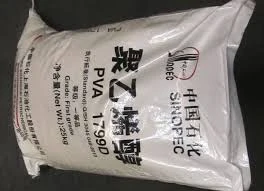Carboxymethyl Cellulose An Overview
Carboxymethyl cellulose (CMC) is a highly versatile, water-soluble polymer derived from cellulose, a natural polymer found in the cell walls of plants. Its unique properties make it an essential ingredient in various industries, including food, pharmaceuticals, cosmetics, and textiles. This article will delve into the characteristics, applications, production methods, and benefits of carboxymethyl cellulose.
Characteristics of Carboxymethyl Cellulose
Carboxymethyl cellulose is a white, odorless powder that is hygroscopic in nature, meaning it can absorb moisture from the environment. This polymer is an anionic derivative of cellulose, which means it carries a negative charge that enhances its solubility in water. CMC exhibits excellent thickening, stabilizing, and emulsifying properties, making it an invaluable ingredient in many formulations. Its viscosity can be modified by altering the degree of substitution, allowing manufacturers to tailor it to specific applications.
One of the most significant characteristics of CMC is its ability to form a gel in the presence of salts, making it useful in various gel formulations. Additionally, it is non-toxic and biodegradable, making it an environmentally friendly option compared to synthetic polymers.
Applications in Various Industries
1. Food Industry In the food sector, CMC is widely used as a thickener, stabilizer, and emulsifier. It can enhance the texture of food products such as ice cream, sauces, and dressings, while also improving shelf-life by preventing separation. CMC is also utilized as a dietary fiber source, contributing to the health benefits of various food products.
2. Pharmaceuticals In the pharmaceutical industry, CMC is employed as a binding agent, thickener, and stabilizer in the formulation of tablets, ointments, and suspensions. Its ability to improve drug solubility and bioavailability is crucial for effective drug delivery. Additionally, it is used in ophthalmic solutions, where it serves as a lubricant and enhances the viscosity of eye drops.
carboxymethyl cellulose

3. Cosmetics and Personal Care CMC finds applications in skin creams, lotions, and shampoos, acting as a thickening and stabilizing agent. Its hydrophilic nature helps retain moisture in cosmetic formulations, contributing to skin hydration. Moreover, CMC can help improve the texture and spreadability of various personal care products.
4. Textiles In the textile industry, carboxymethyl cellulose is utilized as a sizing agent, improving the strength and smoothness of fabrics. It also plays a crucial role in dyeing processes, as it helps maintain uniform dye distribution and enhances color vibrancy.
5. Paper and Printing CMC is used in papermaking as a binder and coating agent, enhancing the paper's strength and printability. It is vital in ensuring high-quality printing surfaces, contributing to the overall appearance and durability of printed materials.
Production Methods
Carboxymethyl cellulose is produced through the etherification of cellulose with chloroacetic acid. The degree of substitution, which defines the level of carboxymethyl groups introduced into the cellulose structure, can be controlled during production to create different grades of CMC. Various factors, such as reaction time, temperature, and pH, influence the properties of the resulting CMC, making it essential for manufacturers to optimize these conditions for their specific applications.
Benefits and Future Prospects
The versatility of carboxymethyl cellulose has made it an irreplaceable component across multiple industries. Its biodegradable nature and non-toxic profile align with the increasing demand for sustainable and environmentally friendly materials. As industries continue to seek innovative solutions, CMC will likely play a pivotal role in developing new products that meet both consumer needs and environmental standards.
In conclusion, carboxymethyl cellulose is a remarkable polymer with a wide array of applications and benefits. Its unique properties make it an essential ingredient in various sectors, from food and pharmaceuticals to cosmetics and textiles. As research and development continue to advance, the potential for CMC to contribute to sustainable solutions and enhanced product formulations is immense.
-
Rdp Powder: Key Considerations for Wholesalers in the Building Materials IndustryNewsJul.08,2025
-
Key Considerations for Wholesalers: Navigating the World of Hpmc - Based ProductsNewsJul.08,2025
-
Hpmc Detergent: Key Considerations for WholesalersNewsJul.08,2025
-
Key Considerations for Wholesalers: China Hpmc For Tile Adhesive, Coating Additives, Concrete Additives, and MoreNewsJul.08,2025
-
Crucial Considerations for Wholesalers: Navigating the World of Construction MaterialsNewsJul.08,2025
-
Key Considerations for Wholesalers Sourcing Additive For Cement, Additive For Concrete, Additive For Putty from Additive Manufacturer Shijiazhuang Gaocheng District Yongfeng Cellulose Co., Ltd.NewsJul.08,2025




